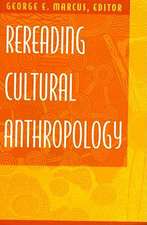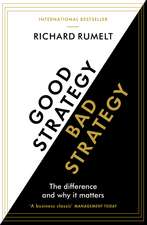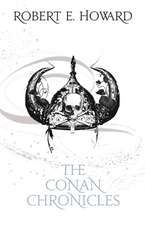Meditations: Dover Thrift Editions
Autor Aurelius Marcus, Marcus, Marcus Aureliusen Limba Engleză Paperback – 30 iun 1997 – vârsta de la 14 ani
Toate formatele și edițiile
| Toate formatele și edițiile | Preț | Express |
|---|---|---|
| Paperback (2) | 21.41 lei 3-4 săpt. | +7.96 lei 6-12 zile |
| Dover Publications – 30 iun 1997 | 21.41 lei 3-4 săpt. | +7.96 lei 6-12 zile |
| Penguin Books – 31 aug 2005 | 67.66 lei 3-5 săpt. |
Din seria Dover Thrift Editions
-
 Preț: 39.39 lei
Preț: 39.39 lei -
 Preț: 67.45 lei
Preț: 67.45 lei -
 Preț: 25.15 lei
Preț: 25.15 lei -
 Preț: 52.41 lei
Preț: 52.41 lei -
 Preț: 25.77 lei
Preț: 25.77 lei - 36%
 Preț: 61.44 lei
Preț: 61.44 lei - 16%
 Preț: 21.50 lei
Preț: 21.50 lei -
 Preț: 43.52 lei
Preț: 43.52 lei - 16%
 Preț: 21.16 lei
Preț: 21.16 lei -
 Preț: 33.19 lei
Preț: 33.19 lei - 16%
 Preț: 66.56 lei
Preț: 66.56 lei -
 Preț: 34.65 lei
Preț: 34.65 lei - 17%
 Preț: 31.67 lei
Preț: 31.67 lei -
 Preț: 55.06 lei
Preț: 55.06 lei -
 Preț: 29.49 lei
Preț: 29.49 lei -
 Preț: 49.32 lei
Preț: 49.32 lei -
 Preț: 40.20 lei
Preț: 40.20 lei -
 Preț: 40.44 lei
Preț: 40.44 lei - 17%
 Preț: 18.21 lei
Preț: 18.21 lei - 55%
 Preț: 16.97 lei
Preț: 16.97 lei -
 Preț: 37.31 lei
Preț: 37.31 lei - 20%
 Preț: 16.43 lei
Preț: 16.43 lei - 16%
 Preț: 53.42 lei
Preț: 53.42 lei -
 Preț: 32.78 lei
Preț: 32.78 lei - 14%
 Preț: 27.66 lei
Preț: 27.66 lei - 17%
 Preț: 31.13 lei
Preț: 31.13 lei - 48%
 Preț: 16.17 lei
Preț: 16.17 lei -
 Preț: 56.50 lei
Preț: 56.50 lei -
 Preț: 30.53 lei
Preț: 30.53 lei -
 Preț: 38.35 lei
Preț: 38.35 lei - 15%
 Preț: 40.71 lei
Preț: 40.71 lei - 13%
 Preț: 28.46 lei
Preț: 28.46 lei -
 Preț: 76.91 lei
Preț: 76.91 lei -
 Preț: 83.12 lei
Preț: 83.12 lei -
 Preț: 27.45 lei
Preț: 27.45 lei - 13%
 Preț: 34.43 lei
Preț: 34.43 lei -
 Preț: 170.50 lei
Preț: 170.50 lei -
 Preț: 44.94 lei
Preț: 44.94 lei -
 Preț: 26.07 lei
Preț: 26.07 lei -
 Preț: 39.62 lei
Preț: 39.62 lei -
 Preț: 26.81 lei
Preț: 26.81 lei -
 Preț: 27.45 lei
Preț: 27.45 lei -
 Preț: 34.87 lei
Preț: 34.87 lei -
 Preț: 32.03 lei
Preț: 32.03 lei - 17%
 Preț: 18.15 lei
Preț: 18.15 lei -
 Preț: 28.44 lei
Preț: 28.44 lei -
 Preț: 56.93 lei
Preț: 56.93 lei - 17%
 Preț: 20.71 lei
Preț: 20.71 lei -
 Preț: 25.35 lei
Preț: 25.35 lei - 16%
 Preț: 66.10 lei
Preț: 66.10 lei
Preț: 21.41 lei
Preț vechi: 25.44 lei
-16% Nou
4.10€ • 4.28$ • 3.39£
Carte disponibilă
Livrare economică 14-21 martie
Livrare express 27 februarie-05 martie pentru 17.95 lei
Specificații
ISBN-10: 048629823X
Pagini: 112
Dimensiuni: 140 x 208 x 7 mm
Greutate: 0.1 kg
Editura: Dover Publications
Seria Dover Thrift Editions
Descriere
One of the world's most famous and influential books, "Meditations, " by the Roman emperor Marcus Aurelius (A.D. 121 180), incorporates the stoic precepts he used to cope with his life as a warrior and administrator of an empire. Ascending to the imperial throne in A.D. 161, Aurelius found his reign beset by natural disasters and war. In the wake of these challenges, he set down a series of private reflections, outlining a philosophy of commitment to virtue above pleasure and tranquility above happiness.
Reflecting the emperor's own noble and self-sacrificing code of conduct, this eloquent and moving work draws and enriches the tradition of Stoicism, which stressed the search for inner peace and ethical certainty in an apparently chaotic world. Serenity was to be achieved by emulating in one's personal conduct the underlying orderliness and lawfulness of nature. And in the face of inevitable pain, loss, and death the suffering at the core of life Aurelius counsels stoic detachment from the things that are beyond one's control and a focus on one's own will and perception.
Presented here in a specially modernized version of the classic George Long translation, this updated and revised edition is easily accessible to contemporary readers. It not only provides a fascinating glimpse into the mind and personality of a highly principled Roman of the second century but also offers today's readers a practical and inspirational guide to the challenges of everyday life."
Cuprins
Book Two
Book Three
Book Four
Book Five
Book Six
Book Seven
Book Eight
Book Nine
Book Ten
Book Eleven
Book Twelve
Extras
2. Manliness without ostentation I learnt from what I have heard and remember of my father.
3. My mother set me an example of piety and generosity, avoidance of all uncharitableness - not in actions only, but in thought as well - and a simplicity of life quite unlike the usual habits of the rich.
4. To my great-grandfather I owed the advice to dispense with the education of the schools and have good masters at home instead - and to realize that no expense should be grudged for this purpose.
5. It was my tutor who dissuaded me from patronizing Green or Blue* at the races, or Light or Heavy† in the ring; and encouraged me not to be afraid of work, to be sparing in my wants, attend to my own needs, mind my own business, and never listen to gossip.
* The colours of the rival charioteers in the Circus. Roman enthusiasm for these races was unbounded; successful drivers earned large fortunes and became popular idols.
† In one form of gladiatorial combat (the ‘Thracian’) the opponents were armed with light round bucklers; in another (the ‘Samnite’) they carried heavy oblong shields.
Notă biografică
Diskin Clay is Professor Emeritus of Classical Studies at Duke University and has published widely in the area of Ancient Greek Philosophy.
Martin Hammond was Head Master of Tonbridge School and has translated many works of classic literature, including Homer's Iliad for Penguin Classics.














